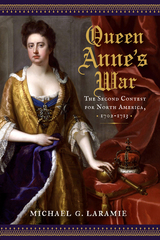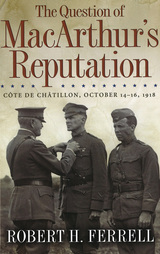699 books about Wars & Conflicts and 2
start with Q
699 books about Wars & Conflicts and 2
699 books about Wars & Conflicts
2 start with Q start with Q
2 start with Q start with Q

Queen Anne's War
The Second Contest for North America, 1702–1713
Michael G. Laramie
Westholme Publishing, 2021
Although King William’s War (1689–1697) had established the basic disputes between New France and the English colonies, the conflict had resolved little beyond making it clear that the smaller French colony was more than capable of defending itself. When news of the War of Spanish Succession (1701–1714), or Queen Anne’s War as it would become known in North America, arrived in 1702, few envisioned that the resumption of the previous conflict would grow to engulf eastern North America from Newfoundland to Florida, pitting the Spanish, English, and French colonies along with their respective native allies into a concerted contest for control of the continent. From the storming of Spanish St. Augustine and the opening shots along the Maine frontier, through the implementation of a series of profit-driven Indian Wars and the destruction of the Spanish mission system in Georgia and Florida, to the direct involvement of Britain in the closing days of the conflict, Queen Anne’s War: The Second Contest for North America, 1702–1713 carries the reader through this oft forgotten, but crucial period in North American history.
Told from the halls of power in North America and Europe, and through the eyes of the men and women who found themselves embroiled in this brutal realignment of colonial interests, Queen Anne’s War recreates the world of early North American expansion at the ground level, providing riveting accounts of the battles across settlements and wilderness as well as the motives, conditions, triumphs, and failures of the Europeans and their respective Native American allies. Based on extensive primary source research and command of English, French, and Spanish sources, the narrative not only describes the economic and geopolitical ramifications of the war that reshaped North America, but intriguingly reveals the sense of independence emerging in the colonies, from Puritan New England to plantation South Carolina, at the close of the war.
Told from the halls of power in North America and Europe, and through the eyes of the men and women who found themselves embroiled in this brutal realignment of colonial interests, Queen Anne’s War recreates the world of early North American expansion at the ground level, providing riveting accounts of the battles across settlements and wilderness as well as the motives, conditions, triumphs, and failures of the Europeans and their respective Native American allies. Based on extensive primary source research and command of English, French, and Spanish sources, the narrative not only describes the economic and geopolitical ramifications of the war that reshaped North America, but intriguingly reveals the sense of independence emerging in the colonies, from Puritan New England to plantation South Carolina, at the close of the war.
[more]

The Question of MacArthur's Reputation
Côte De Châtillon, October 14-16, 1918
Robert H. Ferrell
University of Missouri Press, 2008
Perhaps the best known of all American five-star generals, Douglas MacArthur established his military reputation at the hill of Châtillon during the great battle of the Meuse-Argonne in World War I. The thirty-eight-year-old brigadier general in command of the Eighty-fourth Infantry Brigade boasted to a fellow general that he had inspired his troops by example, taking the hill and breaking the main German line in northern France. Ever since, historical accounts and biographies have celebrated his leadership and bravery.
That MacArthur’s forces prevailed is beyond question, as military historians have shown. Yet in all the annals of the Great War there is no detailed description of what happened at Châtillon, nor of what MacArthur had to do with it. Robert Ferrell examines those events and comes to a startling conclusion—one that will revise how we view this archetypal American hero.
After sifting through the inexact accounts of the battle found in regimental and divisional histories—and through the many biographies of MacArthur that assert his leadership at Châtillon but do not describe it—Ferrell has gone into Army records to determine if what MacArthur claimed was true. In a moment-by-moment account of the battle, he reconstructs the movements of troops and the decisions of officers to show in detail how MacArthur’s subordinates were the true heroes.
Ferrell describes how the taking of Côte de Châtillon could have been a disaster had the Eighty-fourth Brigade followed MacArthur's original plan, a bayonet charge at night. Wiser heads prevailed, and the attack of the Iowa and Alabama regiments was a great success.
Ferrell has completed a chapter in the history of World War I that has stood unfinished for years, showing in masterly fashion how MacArthur exaggerated his reputation at Châtillon. The Question of MacArthur’s Reputation will reward historians seeking to fill gaps in the record, engage readers who enjoy descriptions of battle, and startle all who take their heroes for granted.
[more]
READERS
Browse our collection.
PUBLISHERS
See BiblioVault's publisher services.
STUDENT SERVICES
Files for college accessibility offices.
UChicago Accessibility Resources
home | accessibility | search | about | contact us
BiblioVault ® 2001 - 2024
The University of Chicago Press









